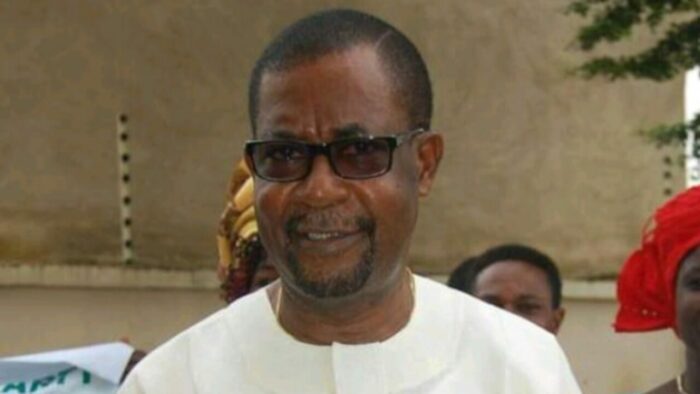Mambilla Power Fraud Trial
Obasanjo’s denial clashes with ex-minister’s defence
Summary
- EFCC accuses former Minister Olu Agunloye of illegal contract award and receiving ₦5.2 million in alleged bribes
- Obasanjo denies approving the 2003 Mambilla hydropower deal, contradicting Agunloye’s claim
- Agunloye pleads not guilty, insists project had presidential blessing and involved no cost to government
- Case continues amid legal disputes, delayed power project, and rising public scrutiny
Abuja, Nigeria — The trial of former Minister of Power and Steel, Dr. Olu Agunloye, over the controversial $6 billion Mambilla Hydropower Project resumed at the Federal Capital Territory High Court in Abuja with a key revelation, a formal statement from former President Olusegun Obasanjo denying he ever approved the project.
Agunloye is being prosecuted by the Economic and Financial Crimes Commission (EFCC) on a seven-count charge including forgery, disobedience of presidential directives, and gratification, relating to his award of a Build, Operate and Transfer (BOT) contract in 2003 to Sunrise Power and Transmission Company Limited (SPTCL) without official approvals or budgetary provision.
According to Umar Babangida, the EFCC’s third witness and lead investigator, Obasanjo’s written testimony, tendered in court on June 16, 2025, states he neither approved nor authorised the controversial deal.
The document, a Certified True Copy of a letter dated November 27, 2023, noted that although Agunloye submitted a memorandum about the project, Obasanjo only directed it be brought before the Federal Executive Council (FEC) for deliberation. That directive, the EFCC claims, was ignored.
The FEC reportedly instructed Agunloye to withdraw his memo and invite more investors for competitive bidding. However, he awarded the contract to SPTCL the very next day, on May 22, 2003, without FEC or presidential endorsement.
The EFCC alleges that Agunloye received N5.212 million in 2019 from SPTCL and its promoter Leno Adesanya, through an associate, Jide Abiodun Sotirin, into his personal Guaranty Trust Bank account. These payments, made years after the contract was awarded, include ₦3.6 million on August 10, 2019, ₦500,000 on October 22, 2019, and ₦1.1 million on November 13, 2019
Prosecutors claim these payments were linked to the contract and intended to give the impression of Federal Government approval, thereby constituting illegal gratification under Nigeria’s anti-corruption laws.
Agunloye, however, pleads not guilty and maintains that the BOT arrangement did not involve public funds, therefore no financial crime was committed. He claims he sought and obtained presidential approval at the time, contradicting Obasanjo’s 2023 statement, which he argues emerged two decades after the fact and may be politically motivated.
In a defamation suit (FCT/HC/CV/1199/2024), Agunloye accuses the EFCC of deliberately misrepresenting the project’s nature and value. He cited a 2005 letter by senior lawyer Afe Babalola, a known associate of Obasanjo, affirming that the contract was duly awarded.
Agunloye also raised concerns that despite multiple re-awards and six cancellations of the contract by successive governments, only he has been singled out for prosecution.
The presiding judge, Justice Jude Onwuegbuzie, admitted Obasanjo’s statement as a temporary exhibit, despite objections from Agunloye’s lead counsel, Samuel Fagade, who reserved his argument for the final address. The EFCC also successfully amended the charges in January 2025, leading Agunloye to enter a fresh plea.
Earlier in January 2024, Agunloye was remanded at Kuje Correctional Centre before securing a ₦50 million bail.
The trial, registered as FCT/HC/CR/617/2023, has been adjourned to June 18, 2025, for continuation of hearing.
The case has reignited attention on the long-delayed Mambilla project, intended to be Nigeria’s largest power plant but mired in controversy, arbitration, and mismanagement.
The legal wrangling between SPTCL and the Federal Government has reached international tribunals, stalling progress on the hydropower initiative meant to alleviate Nigeria’s electricity shortfall.
Social media users, especially on X, have weighed in on the proceedings, some questioning the timing of Obasanjo’s denial, while others highlight systemic failures in Nigeria’s infrastructure governance.
As the court prepares to resume proceedings, it remains to be seen whether the former minister is convicted, and whether this trial brings any closure to one of Nigeria’s most controversial and elusive energy projects.







